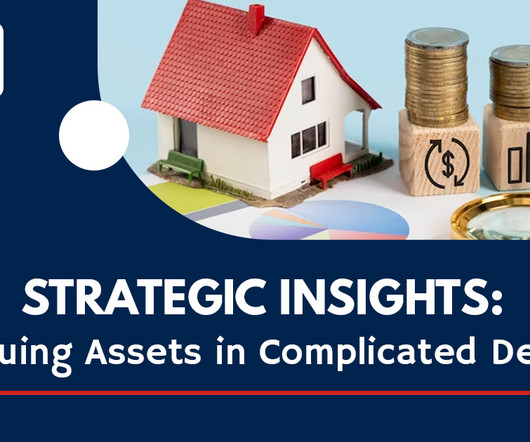Strategic Insights: Valuing Assets in Complicated Deals
RNC
NOVEMBER 2, 2023
Company valuation is a crucial component that can make or break a deal in the dynamic world of mergers, acquisitions, and other complex financial transactions. Accurate asset valuation is essential for determining a company’s value, as well as for ensuring that all parties involved benefit from a just and equitable resolution.












Let's personalize your content